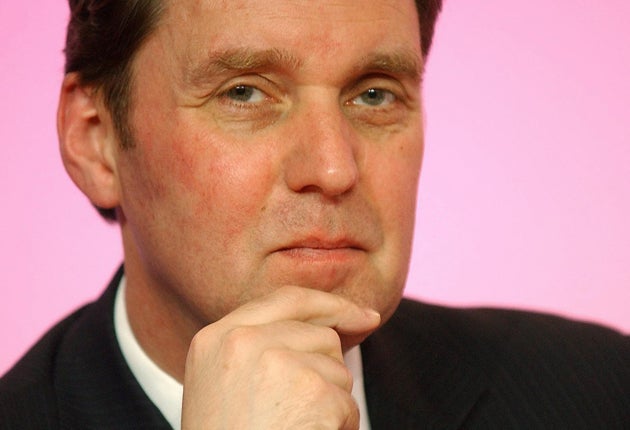Milburn breaks ranks over lifting cap on university fees
Students would face charges of up to £20,000 on some campuses

Your support helps us to tell the story
From reproductive rights to climate change to Big Tech, The Independent is on the ground when the story is developing. Whether it's investigating the financials of Elon Musk's pro-Trump PAC or producing our latest documentary, 'The A Word', which shines a light on the American women fighting for reproductive rights, we know how important it is to parse out the facts from the messaging.
At such a critical moment in US history, we need reporters on the ground. Your donation allows us to keep sending journalists to speak to both sides of the story.
The Independent is trusted by Americans across the entire political spectrum. And unlike many other quality news outlets, we choose not to lock Americans out of our reporting and analysis with paywalls. We believe quality journalism should be available to everyone, paid for by those who can afford it.
Your support makes all the difference.A former Labour Cabinet minister has added his voice to calls for the the £3,200-a-year cap on tuition fees to be lifted, paving the way for annual charges of £20,000. Alan Milburn, appointed by Gordon Brown as his "social mobility tsar", has broken the unofficial Labour/ Conservative pact of silence on the issue by saying he is in favour of universities being allowed to charge higher fees.
His comments came during a questions session after a lecture he gave to the National Education Trust in London on how to promote more social mobility. "You might be surprised but I take the view the cap should be taken off," he said, adding that there should also be some mechanism for ensuring universities used the extra money they received to give financial help to hard-up youngsters. "They should use the money to attract a broader base of students into their university."
The day before, a report from graduate employers said the cap should be lifted completely, leaving universities free to charge whatever they like. Some universities would charge full-cost fees of up to £20,000 a year. Vice-chancellors said they would expect a rise, to £6,500 a year, on average.
The silence pact follows the setting up of a government inquiry into student finance, which will report after the general election. Some observers have seen this as a convenient way of allowing both major parties avoiding saying where they stand on the issue until after the election. Mr Milburn said that evidence after the introduction of top-up fees had failed to give any indication that youngsters from hard-up homes were being put off from applying to university. "In fact, the numbers have increased," he said. The rise has been put down to an improved support package, which gives students a maintenance grant and exempts them from fees.
In his lecture, Mr Milburn also called for "credits" or vouchers to buy a school place elsewhere to be given to hard-up families whose children were trapped in poorly performing schools. The voucher should be 150 per cent of the cost of a school place which would act as a persuader to good schools to accept the children.
"Some would find that an unacceptable hardship incentive and I understand the objections to it," he said. "It would have to be piloted to see if it worked. I don't believe it is right and I don't think we should tolerate a situation money can buy you a place in a good school. This is about correcting and shifting the balance of power."
In many cases, rocketing house prices near the top-performing schools put places out of reach of poorer parents. Mr Milburn, speaking against a background of new figures showing one in six families (just under 90,000) had failed to get their children into their first choice secondary school.
The Conservatives have said they would set up a network of independent "free" schools run by parents, faith groups and private providers. Both Labour and the Liberal Democrats have also said they would back parents running their own schools, provided it did not mean running down resourcers for existing state schools.
Join our commenting forum
Join thought-provoking conversations, follow other Independent readers and see their replies
Comments